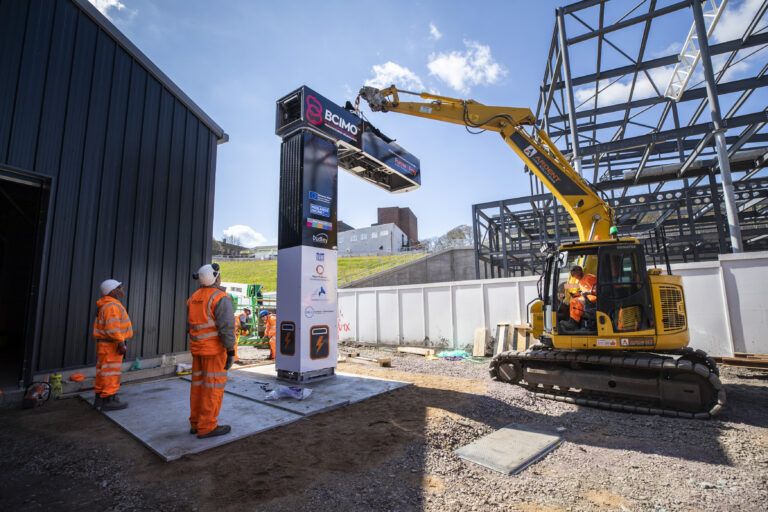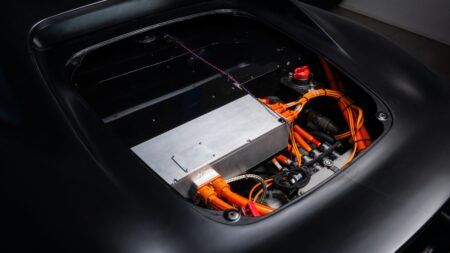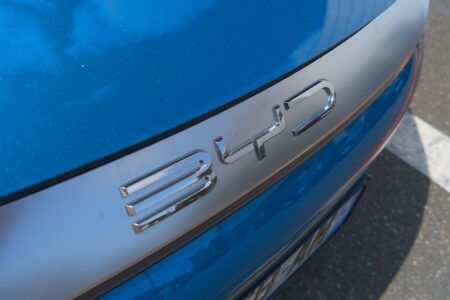The world’s first Very Light Rail (VLR) ultra-rapid battery charge station has been installed at its dedicated testing center in Dudley, England, by Furrer+Frey GB.
The announcement brings the new mode of public transport a step closer — supporting global efforts to decarbonize transport.
The charge station will top-up battery powered VLR vehicles wirelessly and autonomously at scheduled three-minute stops, as a low-cost alternative to traditional overhead line electrification.
The Furrer+Frey All-In-One OpBrid charger is already in use for electric buses in Spain and the Netherlands. But new software developed by the Swiss firm’s British arm means the charger can support new light trams as well as buses.
Furrer+Frey aim to manufacture the charge stations in the UK. The new VLR charger is built with steel from Newport and software developed at their headquarters in Derby.
The charge station is part of a multi-million-pound project to develop Coventry’s Very Light Rail system, bringing the benefits of a tram at a fraction of the cost.
A prototype Coventry VLR vehicle has been developed and will shortly undergo extensive testing using the charger and tracks at the Very Light Rail National Innovation Centre (VLRNIC) in Dudley.
The VLRNIC is a unique facility that alongside the ongoing R&D into VLR technologies, will also facilitate the development of a supply chain to develop integrated VLR systems, creating manufacturing jobs in the Black Country and West Midlands, and the development of a VLR market, both in the UK and overseas.
The first VLR services could be up and running in Coventry by 2025.
The news comes a day after the UK Prime Minister confirmed the British government would enshrine its sixth carbon budget in law, requiring carbon emissions to fall 78 percent by 2035 compared to 1990.
Noel Dolphin, UK Managing Director, Furrer+Frey, said: “We are delighted to be building on our long history of rail electrification with this world-first charging solution for Very Light Rail. With the right set-up the unit will work across buses, bin lorries or even heavy rail – helping us to tackle the climate emergency.nThe software was made by our team in the UK and we plan to manufacture future units here in Britain.”
Balvinder Heran, Deputy Chief Executive, Dudley Council, said: “Dudley Council is keen to promote the use of cutting edge technology to drive innovation across the borough. The VLR project is one example of new technological innovations we are proud to develop and be at the forefront. We will be the first area in the UK to trial this ultra-rapid charge station and it’s one example of our ambition to develop cutting edge innovations which in turn will encourage investors to Dudley, create jobs and build strong career opportunities across Dudley.”





